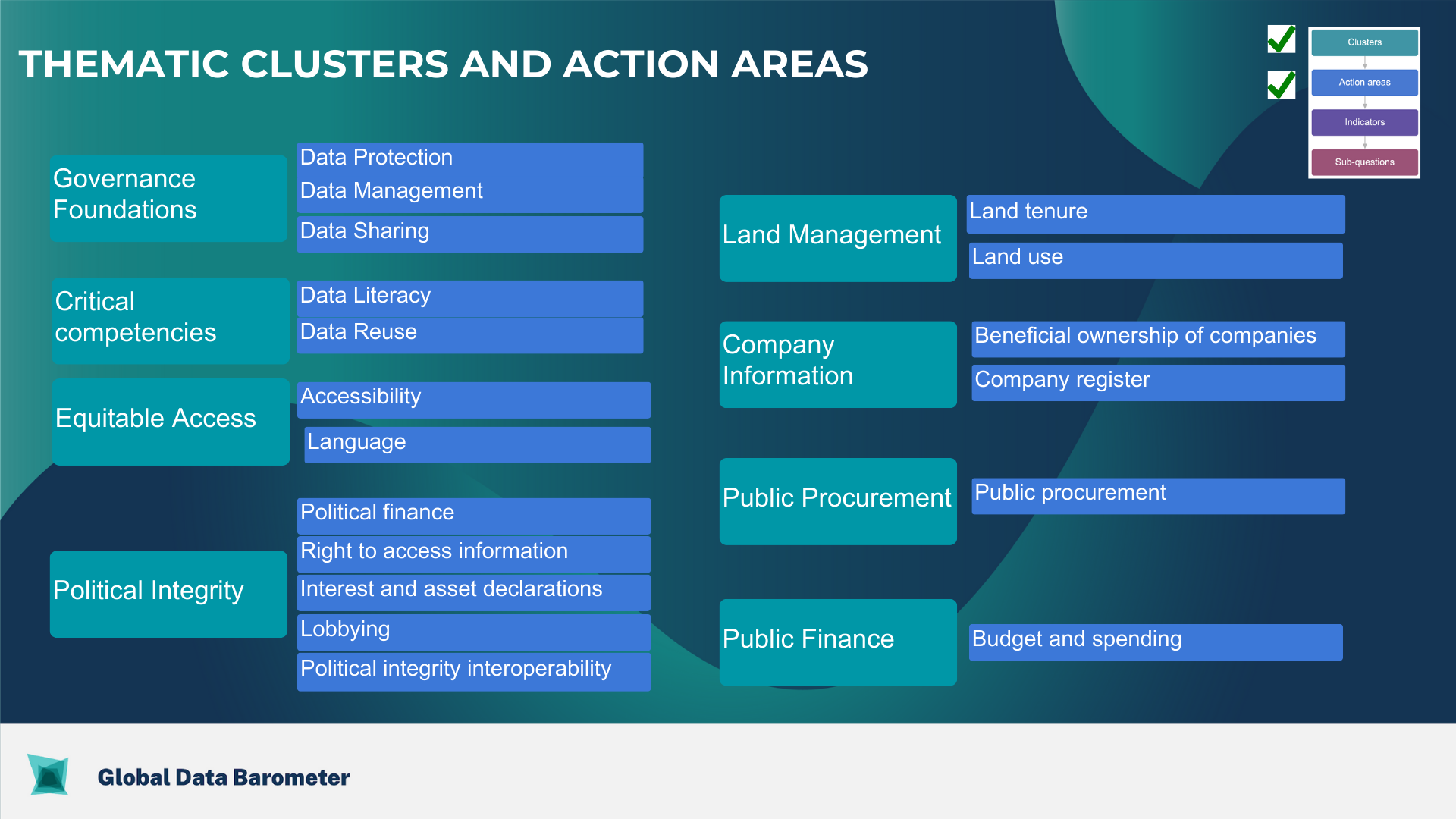Evolving for Impact: The Second Edition of the Global Data Barometer Deepens Insights Across the Global South
We are thrilled to announce that we have reached an exciting milestone towards the second edition of the Global Data Barometer. Data collection has officially started!
Data collection kicked off with training of over 43 country researchers that will work with our regional partners to collect data for the Barometer. For this second edition, we are working with ILDA and the Local Development Research Institute with the support of the Caribbean Open Institute to conduct research in Latin America and the Caribbean as well as Africa.
The second edition of the Global Data Barometer
Building on the success and insights gained from the first edition, the second Global Data Barometer introduces key updates to its structure. Notably, thematic modules are now organized into thematic clusters, such as political integrity, land management, and public procurement, among others. These clusters offer a more refined and focused approach to assessing national data ecosystems, providing a comprehensive view of core aspects of data governance and availability within these critical sectors. The following image outlines the key clusters and action areas:

While the first edition was built around four pillars — availability, governance, capability, and use—the second edition reorganizes these into three pillars, governance, capabilities, and availability. You might wonder if we have eliminated the use pillar — no, we haven’t. Instead, for this edition, we have restructured how we track data use. It is now presented as a cross-cutting theme to better capture how data is being utilized and its impact across various sectors.
To learn more about the modules and thematic clusters, watch the video below:
Cross-cutting themes allow us to take a deeper dive into new areas including data foundations for artificial intelligence (AI) and inclusion, to name a few. In the last decade, these areas have become increasingly important as governments and organizations leverage data to solve complex challenges in the digital age. This approach allows for a more integrated and nuanced exploration of how data is applied across different sectors and regions.
One significant change in the second edition is the removal of the Health and COVID-19 thematic cluster. This cluster was a key contribution in exploring the state of data at the peak of the pandemic, however, the world has moved beyond the peak of the pandemic and the urgency to track this specific data has diminished. In light of this, the Barometer will continue to focus on new and emerging data challenges reflecting how the global landscape has shifted in response to post-pandemic recovery and digital transformation.
In exciting news, the Land Portal Foundation’s State of Land Information (SOLI) index has evolved from the groundwork established in the first edition of the Global Data Barometer. As our thematic partner for the land management cluster, the Land Portal Foundation plays a vital role in promoting land transparency. We are excited to continue this collaboration and contribute to our shared mission through these important projects.
In terms of thematic partnerships we are also thrilled to continue our work with key thematic partners, the Open Government Partnership and Transparency International continue as our thematic partners on the political integrity module. The module will assess data foundations in five key action areas; political finance, rights to access of information, interest and asset declarations, lobbying, and political integrity interoperability.
Our company information thematic cluster co-developed with Open Ownership focuses on two action areas, beneficial ownership of companies and company register data. The Open Contracting Partnership and the Global Initiative for Fiscal Transparency (GIFT) continue as our thematic partners for the public procurement and public finance thematic clusters respectively. We are grateful to our thematic partners that contributed to the success of our first edition and continue with us in the edition.
This video provides highlights into the work conducted by our partners using the findings from the first edition of the Global Data Barometer:
The Global Data Barometer continues to evolve as a powerful learning tool for governments, policymakers, and civil society. With refined indicators and a participatory data collection process, the second edition is poised to offer valuable insights that can guide policy development, foster transparency, and enhance accountability in how data is governed, shared, and used for the public good.
